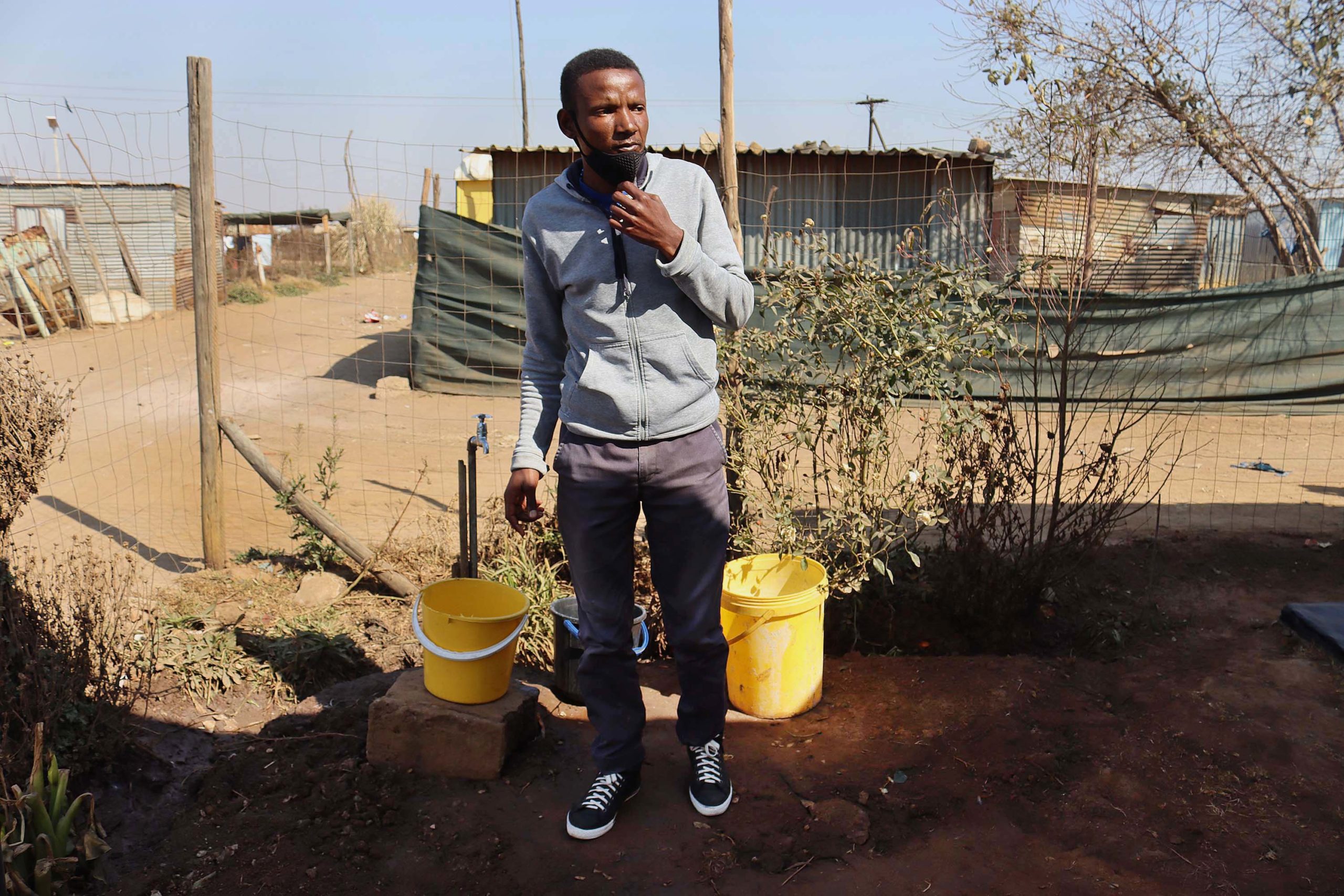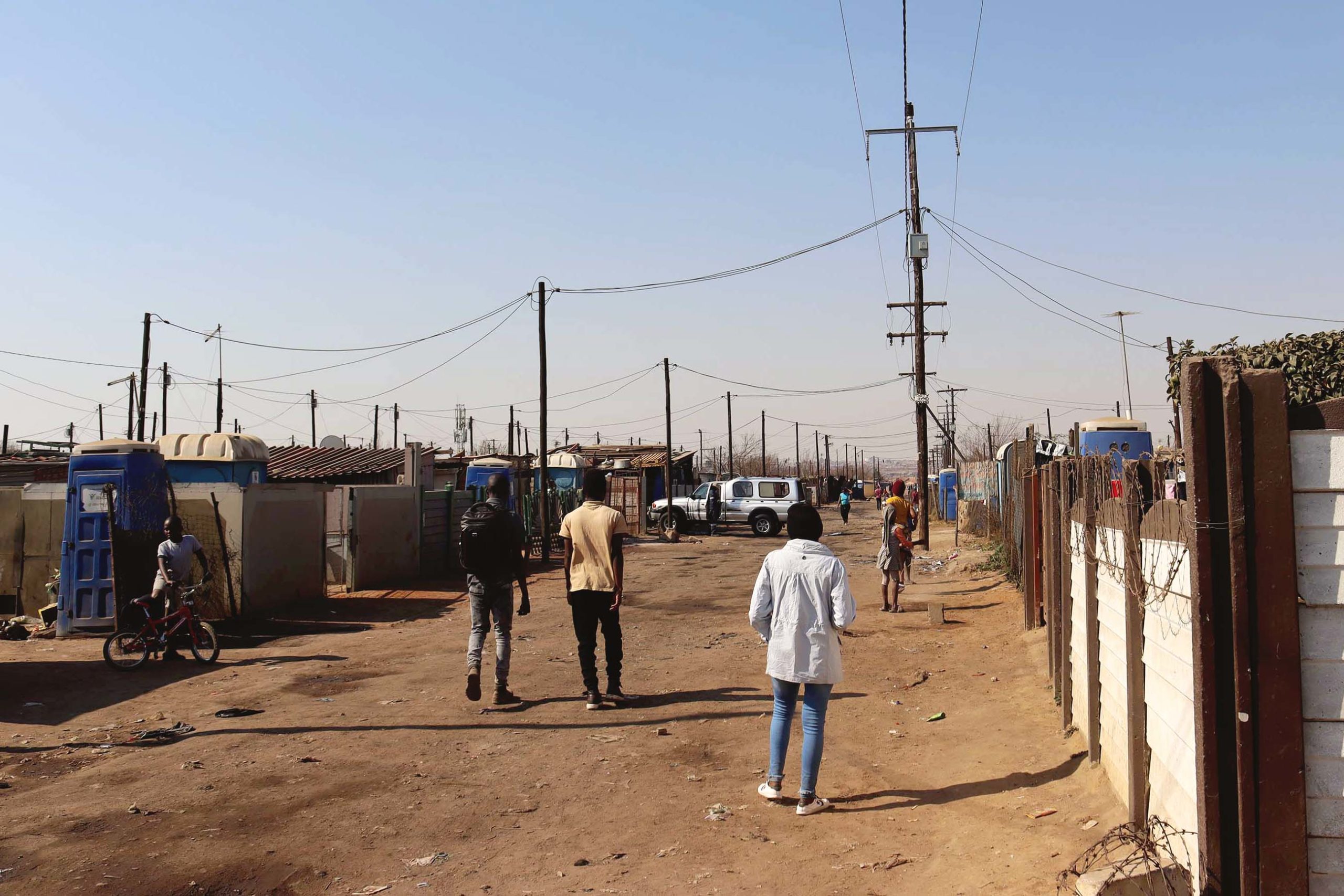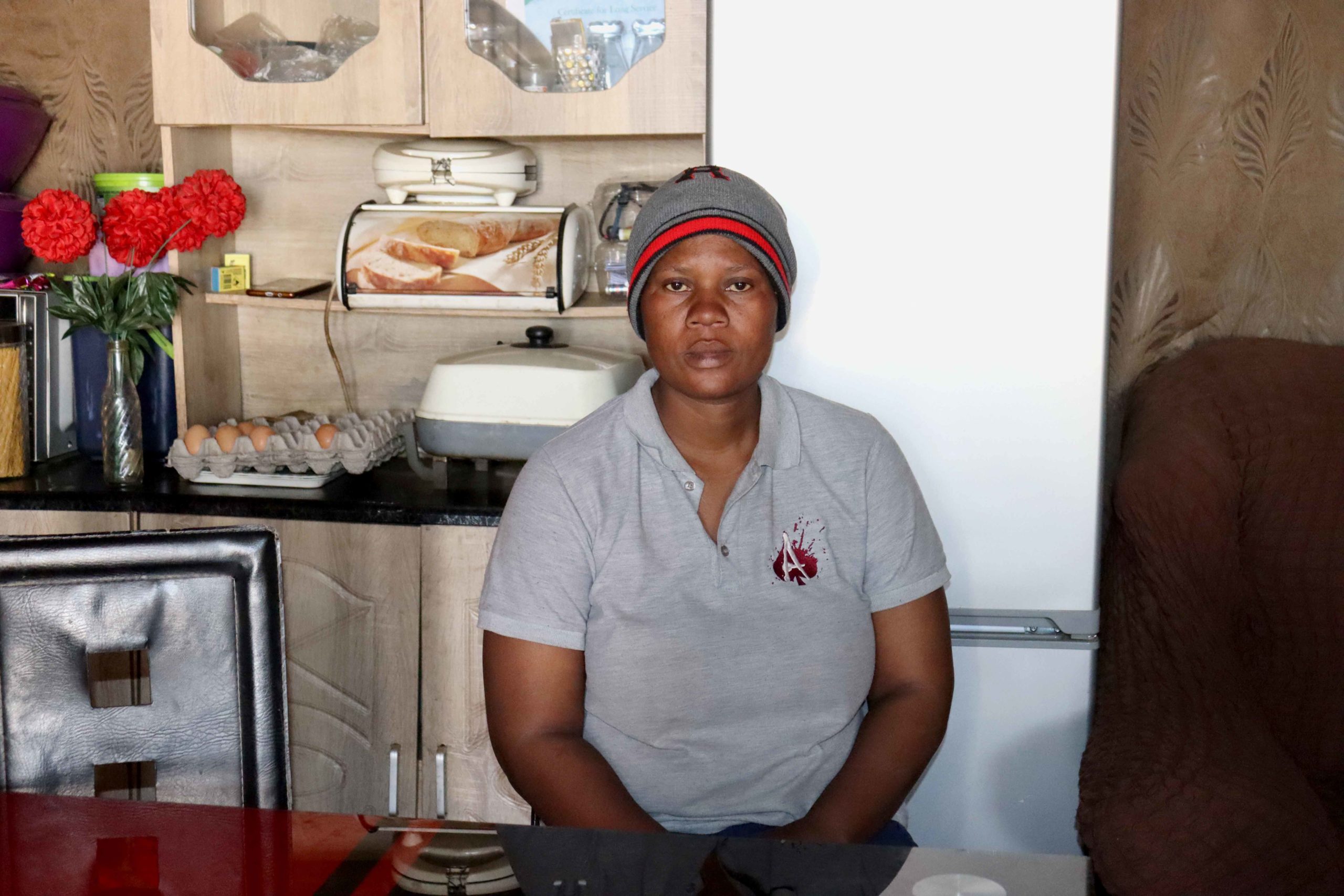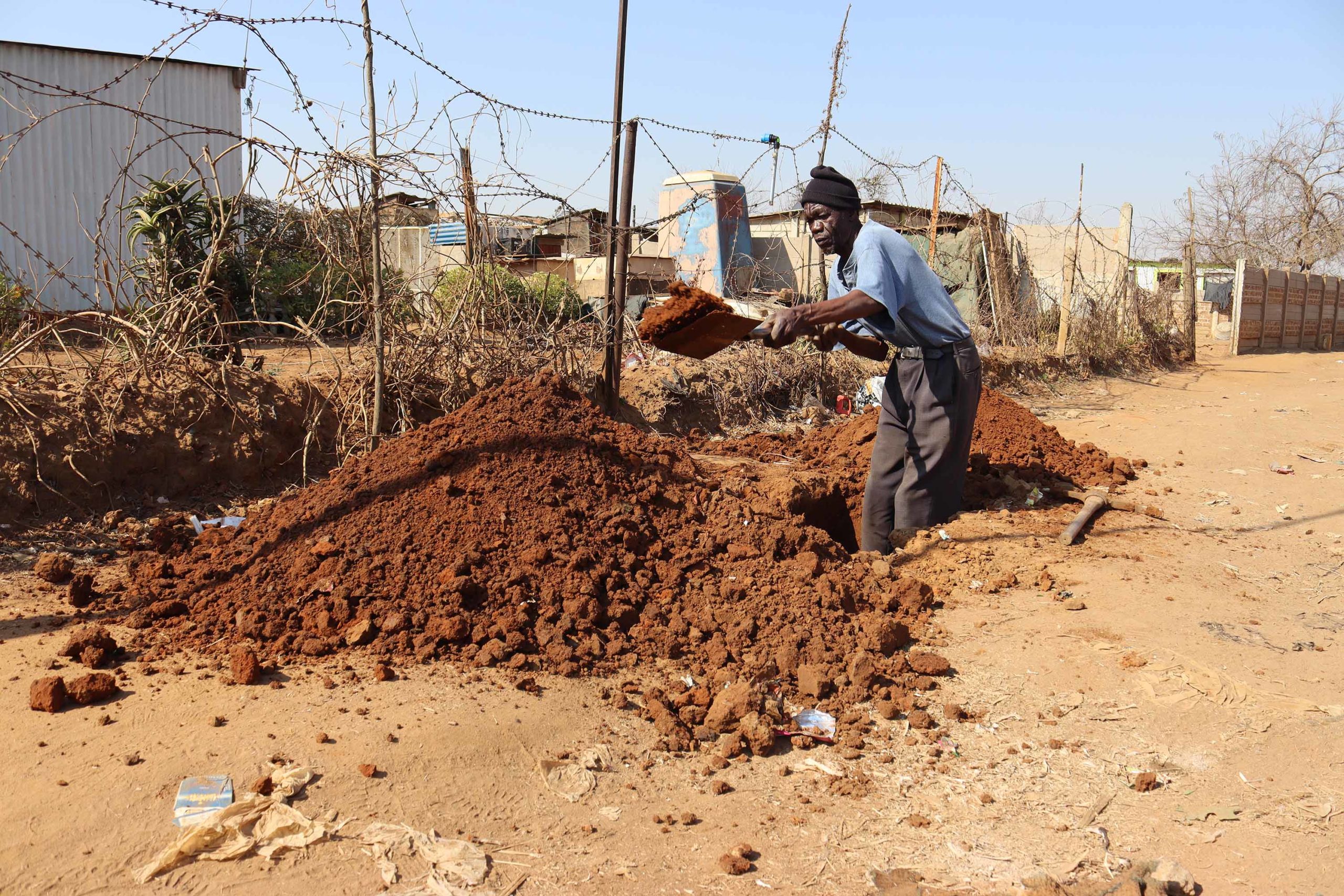Struggle for housing in Ekurhuleni seems endless
In parts of Gabon, a shack settlement outside Etwatwa, Gauteng, residents continue to fight for houses and electricity because none of the development they see elsewhere is reaching them.
Author:
27 October 2021

“We grew up in the dark and now our children are growing up in the dark. They say your vote is your voice, but I don’t have a voice. I don’t even own a chair,” said Kgopotso Sekwati, 37.
Sekwati lived in a shelter before moving in with his foster parents and gradually settling in the Gabon shack settlement outside Etwatwa, Ekurhuleni, in 2002. He has seen many changes in municipal leadership but little in the way of development.
In 2009, a number of people were moved from Gabon to neighbouring Chief Albert Luthuli Extension 6 in Daveyton. According to Zweli Dlamini, Ekurhuleni City spokesperson, the last allocation of RDP houses in Extension 6 was meant to benefit 110 people from Gabon.

He claims that the residents still living in Gabon are former tenants from elsewhere, or the children of residents living in the houses allocated to them in Extension 6. The “others have been invading the spaces left as a result of house allocation”, said Dlamini.
But Gabon residents who remain without homes want to know how they got left behind and yet the relocation project is considered complete.
“What about us with no parents, with nothing?” said Sekwati, who is unemployed and has four children. “Who grew up in these very shacks, who vote for them [the ANC] and are registered [for houses]?
Sekwati shrugged. “We’ve got proof that we grew up here, but when they have to help us…”
A divided settlement
The piece of land in Gabon has been split into different smaller shack settlements. The Lindokuhle portion was electrified in 2019, but not Gabon and Mbalenhle. The City says Lindokuhle got electricity because it is on municipal land while Gabon is on private land.
Lindokuhle resident Nkanyezi Nhlapo, 35, lives a short distance from a transformer that exploded because, he speculates, it buckled from the pressure of other sections piggybacking on its power supply.
“The problem is that some of us buy electricity, but those who connect are the ones who are messing us up because they don’t have electricity, so they connect illegally and we end up having our goods damaged. Even the things in the fridge rot,” said Nhlapo, who lives with his brother, wife and two children. “We have young children too. We have to help them with homework, but how can we help them when it’s dark? It’s tough.”
Nhlapo only had electricity for a year before the transformer exploded. Since then, he has resorted to using candles, which is difficult for a family with a seven-month-old. “Lighting candles near a small baby is tricky because you must make him bottles. That requires hot water, so it’s difficult without electricity,” he said.
Welivy Mongwe, 38, has three children to support with the money she makes from her job as a general worker at a food factory, where she has been employed since 2010. She supplements her income with the social grants she gets for two of her children.

Mongwe lives in a neat shack with a microwave, fridge, television and washing machine. But there is no electricity. Instead, she has a large generator that is obscured by a bed with stacks of clothing and blankets on it. It costs her R95 for 5 litres of diesel to run the generator.
“We also want to live like isilungu [white people], like those with electricity, but we even struggle with that. Our children are being killed because of izinyokanyoka [those who help with informal electricity connections], but we also tell ourselves that we want to try and live like [those with electricity],” she said.
Mongwe says once it’s dark outside, no one walks the streets, and sometimes the residents hear gunshots. “Now we are not even scared of the bullets. We tell ourselves that they are fireworks.”
She wants authorities to see their living conditions and how living without electricity affects them. “When we have to leave for work in the morning it is pitch dark. We want [politicians] to come and see how we fetch water in buckets … how many dead bodies there are when we wake up in the morning. We find people covered in plastic when we go to work in the morning. Who will we say killed them when there are no lights?”
Left behind
Some residents say that once housing committee members in Gabon got their RDP houses, they stopped fighting for those who did not. Although they were part of the same struggle originally, this changed once they were comfortable. Others claim there has been corruption with the housing allocation.
“Many won’t admit that they pay money for houses, but they do,” said Sekwati.
An unemployed woman who asked to remain anonymous says only those with money or connections are being moved to houses. “If you don’t have money for a ‘cold drink’ [bribe], you won’t move. And the cold drink money is a lot,” she said, adding that a neighbour was below her on the housing list but allegedly paid R40 000 to move to Chief Albert Luthuli ahead of her.
She has two children and says they have never known the “luxury” of living with electricity. She buys paraffin for R13 a litre, which doesn’t last a week. “[I am] afraid to leave my children in the house because they sometimes switch on the primus stove and that can be dangerous,” she said.

She also says people get moved up on the housing list through corruption. “Some people even steal numbers. Like me, they stole my number here. It was approved but when I went to go and check, it turns out the number has been taken and used by someone else and they have already moved.”
Sekwati, who says the residents can only stay in Gabon if they get electricity, is fed up with the situation. “We are suffocated by the anger that nothing is going right. We don’t have that R8 000 or R15 000 that others are paying [as bribes].”
The residents say they have been encouraged to initiate talks with the private landowner for permission to electrify their shacks. But they feel that a municipal official should spearhead such an effort. “How can we do that? We have never even sat at a table with him,” said Sekwati.
The municipality said, “There’s no council resolution enabling officials to engage [a] private landowner for temporary arrangements, unless the City intends to buy such a piece of land. That only happens after several pre-planning studies like feasibility have been conducted.”
